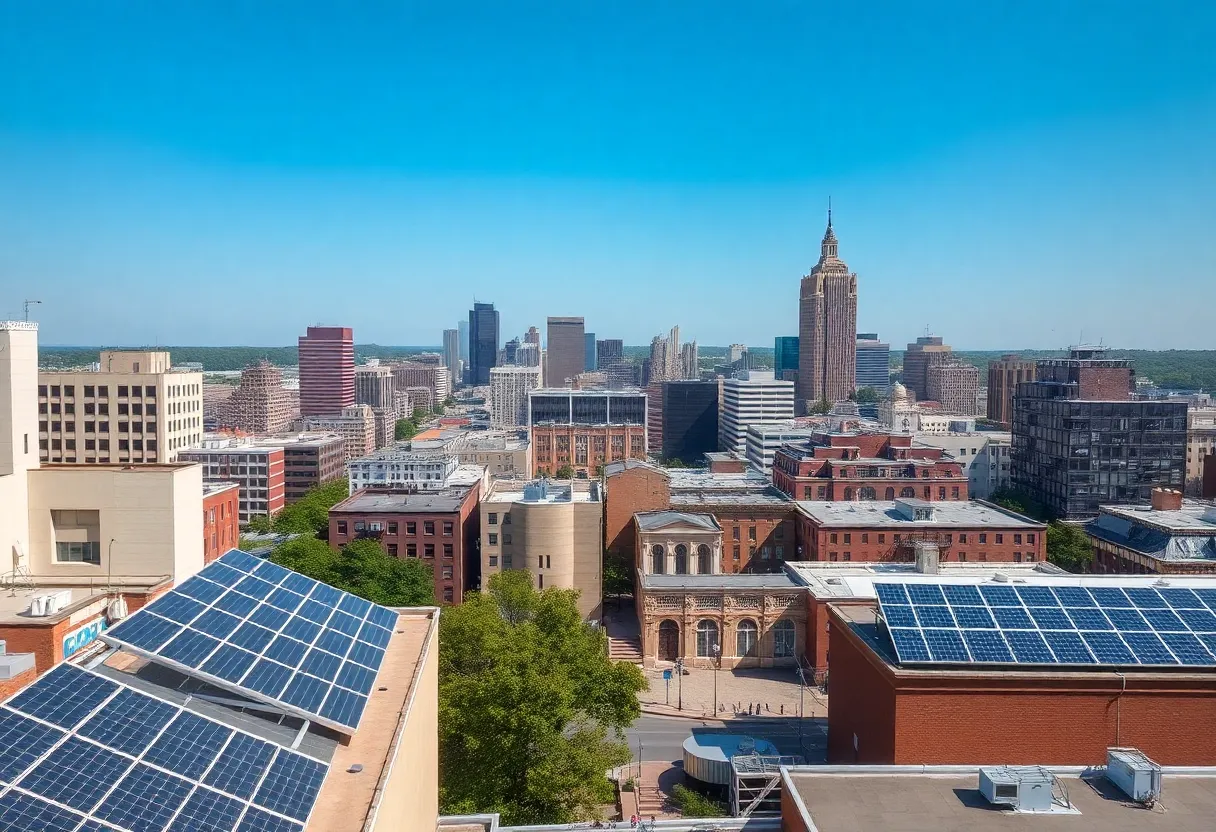News Summary
Massachusetts is currently grappling with economic difficulties as its inflation and unemployment rates exceed national averages. Governor Maura Healey has acknowledged these challenges, prompting her to announce measures to help alleviate rising energy costs. Critics have pointed to mismanagement of state funds and policies affecting the economy. Despite these issues, the state has seen positive developments in the clean energy sector, including the inauguration of a major solar field. However, concerns remain about the potential impact of changing federal leadership on future funding for these critical projects.
Massachusetts is grappling with economic challenges as inflation and unemployment rates in the state outpace national averages, despite a recent decline in nationwide inflation, according to a new report. The Labor Department indicated that consumer prices rose by 2.3% in April 2025, the smallest increase recorded in over four years.
Governor Maura Healey has acknowledged the significant economic difficulties faced by Massachusetts residents due to escalating costs. In response to these pressing challenges, Healey announced measures aimed at alleviating energy expenses, as financial pressures continue to rise across the state.
Recent findings from the MassBenchmarks report reveal that Massachusetts is currently experiencing inflation and unemployment rates that surpass national levels, a situation compounded by an ongoing economic slowdown. Amy Carnevale, Chair of the Massachusetts Republican Party, has criticized Healey for what she characterizes as mismanagement of state funds, contending that it has contributed to the high cost of living in the state. Carnevale specifically pointed to increased home energy costs, blaming recent mandates related to green energy policies initially established under former Governor Charlie Baker, while Healey’s administration has continued these policies.
Alan Clayton-Matthews, an economist at Northeastern University, explained that while Healey’s policies may influence future economic growth, they do not directly impact the immediate economic issues at play, which are also influenced by changes at the federal level. Carnevale added that Massachusetts is feeling greater adverse effects than can be solely attributed to tariffs, arguing that the state’s economic turmoil is more severe than federal impacts alone suggest.
In her defense, Governor Healey pointed out that no state can completely counteract federal budget cuts that disproportionately affect Massachusetts due to its reliance on federal grants and foreign trade. Overall, Massachusetts’s economy has been growing at a significantly slower rate compared to the national economy.
While analysts recognize the implications of state leadership on future growth dynamics, they caution that the immediate economic challenges are influenced more by federal decisions. Healey has expressed concern over the Republican Party’s tendency to assign local blame without adequately addressing the broader federal factors impacting the state.
Despite the economic challenges, there have been positive developments within Massachusetts’s clean energy sector. The Massachusetts Municipal Wholesale Electric Company (MMWEC) has inaugurated the largest solar field in the state, named after Master Sergeant Alexander Cotton. This solar field is expected to generate over 13,800 megawatt-hours of energy annually, benefiting the state’s grid.
Furthermore, MMWEC secured a $2.3 million clean energy tax credit under the Inflation Reduction Act, which funds energy projects in Massachusetts. Since April 2022, President Biden’s administration has allocated nearly $2.6 billion in climate-related grants to the state, facilitating projects such as electric buses in schools and updates to the energy grid for low-income communities.
However, not all stakeholders are on board with the current federal initiatives. Former President Donald Trump has criticized the Inflation Reduction Act, labeling it a “con job,” and his potential return to the presidency could impede the progress of clean energy investments. This has prompted Massachusetts officials to carefully review legislative proposals aimed at simplifying federal grant applications, as some opportunities come with labor standards that the state does not currently meet, restricting the access to necessary funds.
Overall, there is a rising urgency within the Massachusetts government to secure federal funding for clean energy projects before potential changes in federal leadership could jeopardize these resources. Stakeholders worry that the momentum of federal climate-related funding may not be sustainable if the political landscape shifts in the near future.
Deeper Dive: News & Info About This Topic
- New York Times: Inflation, Prices, and Tariffs
- Wikipedia: Inflation
- Reuters: US Consumer Prices Rise
- Google Search: Inflation Reduction Act
- MassLive: Ludlow Solar Project Funding
- Encyclopedia Britannica: Economics
- Boston Globe: Massachusetts and Federal Clean Energy Dollars
- Google News: Massachusetts Economic Challenges

Author: STAFF HERE BOSTON WRITER
The BOSTON STAFF WRITER represents the experienced team at HEREBoston.com, your go-to source for actionable local news and information in Boston, Suffolk County, and beyond. Specializing in "news you can use," we cover essential topics like product reviews for personal and business needs, local business directories, politics, real estate trends, neighborhood insights, and state news affecting the area—with deep expertise drawn from years of dedicated reporting and strong community input, including local press releases and business updates. We deliver top reporting on high-value events such as Boston Marathon, Head of the Charles Regatta, and Boston Harborfest. Our coverage extends to key organizations like the Greater Boston Chamber of Commerce and Associated Industries of Massachusetts, plus leading businesses in finance, biotech, and insurance that power the local economy such as Fidelity Investments, Biogen, and Liberty Mutual Insurance. As part of the broader HERE network, we provide comprehensive, credible insights into Massachusetts's dynamic landscape.





